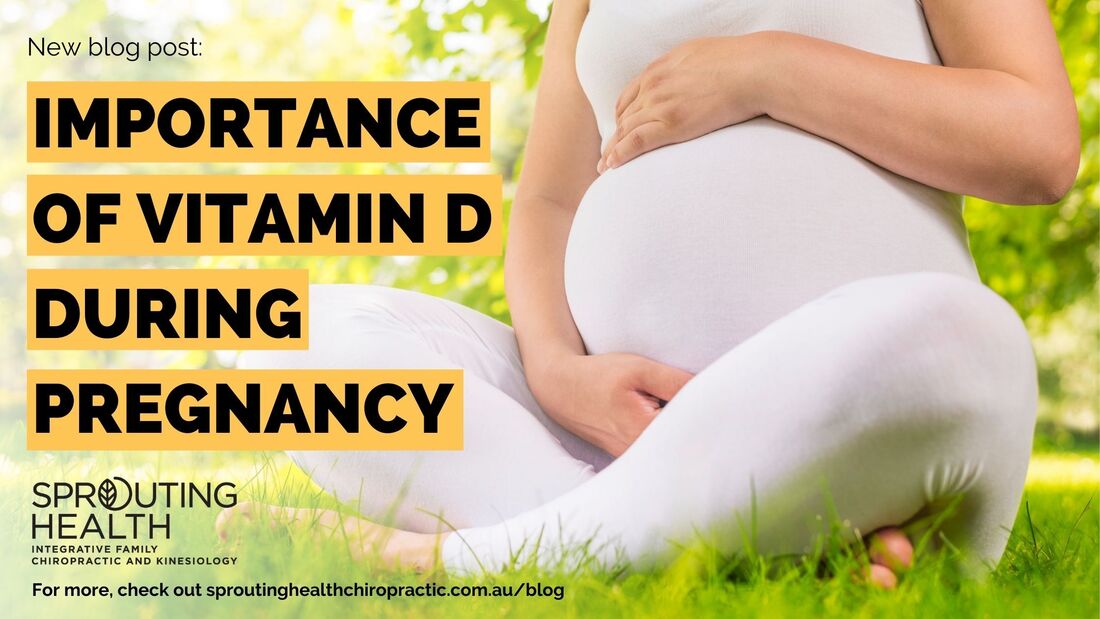|
Vitamin D deficiency and insufficiency occurs in 27-91% of all pregnant women depending on the country they live in.[1] Vitamin D has many important functions in the human body and can have a huge effect on pregnant mums, developing foetus’ and newborns if mothers are deficient during pregnancy.
Studies have now found links between vitamin D deficiency and poor immune system function. Low maternal vitamin D predisposes the fetus/newborn to low vitamin D stores which can lead to rickets, wheezing, upper respiratory tract infections and mental health issues. Maternal vitamin D deficiency in pregnancy has also been associated with the increased development of allergies and eczema in children. [2],[3] Low vitamin D levels during pregnancy can also increase the risk of pregnancy complications and is associated with pre-eclampsia, gestational diabetes, pre-term births, and small for gestational age babies.[4] While some foods like salmon, sardines, tuna, cod-liver oil, egg yolk and shiitake mushrooms provide some Vitamin D, diet alone only provides 100 to 200 IU of vitamin D per day. However exposure to sunlight produces 10,000 to 20,000 IU when 30% of the body surface area is exposed to sunlight 15-30 minutes a day.[5] It is really important to ensure you are meeting your daily vitamin D needs especially if you planning to conceive or are currently pregnant. Having your vitamin D levels assessed for deficiency and supplementing when necessary, can help improve pregnancy and child health outcomes. If you have any questions or concerns about your Vitamin D needs and intake, please give us a call and we can help you get the support you need during your pregnancy and beyond. References [1] Hossein-nezhad A., Holick M.F. Vitamin D for health: A global perspective. Mayo Clin. Proc. 2013;88:720–755. [2] Jones A.P., Palmer D., Zhang G., Prescott S.L. Cord blood 25-hydroxyvitamin D3 andallergic disease during infancy. Pediatrics. 2012;130:e1128–e1135. doi: 10.1542/peds.2012-1172. [3] Baïz N., Dargent-Molina P., Wark J.D., Souberbielle J.C., Annesi-Maesano I., EDEN Mother-Child Cohort Study Group Cord serum 25-hydroxyvitamin D and risk of early childhood transient wheezing and atopic dermatitis. J. Allergy Clin. Immunol. 2014;133:147–153. [4] Wei S.Q., Qi H.P., Luo Z.C., Fraser W.D. Maternal vitamin D status and adverse pregnancy outcomes: A systematic review and meta-analysis. J. Matern. Fetal. Neonatal Med. 2013;26:889–899. doi: 10.3109/14767058.2013.765849. [5] Bouvard B., Annweiler C., Sallé A., Beauchet O., Chappard D., Audran M., Legrand E. Extraskeletal effects of vitamin D: Facts, uncertainties, and controversies. Joint Bone Spine. 2011;78:10–16. doi: 10.1016/j.jbspin.2010.10.011.
1 Comment
9/9/2022 11:48:28 am
I know something about cord blood can anyone help me to understand why do hospitals take cord blood?
Reply
Leave a Reply. |
AuthorBlogs by the team at Sprouting Health Archives
July 2024
Categories |


 RSS Feed
RSS Feed
